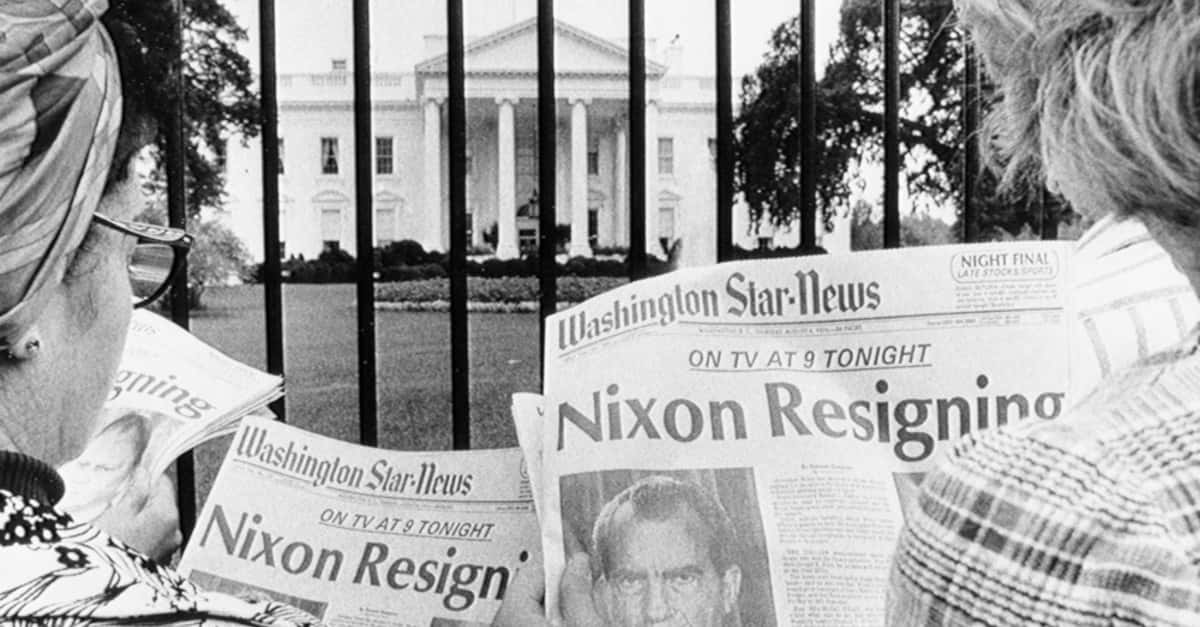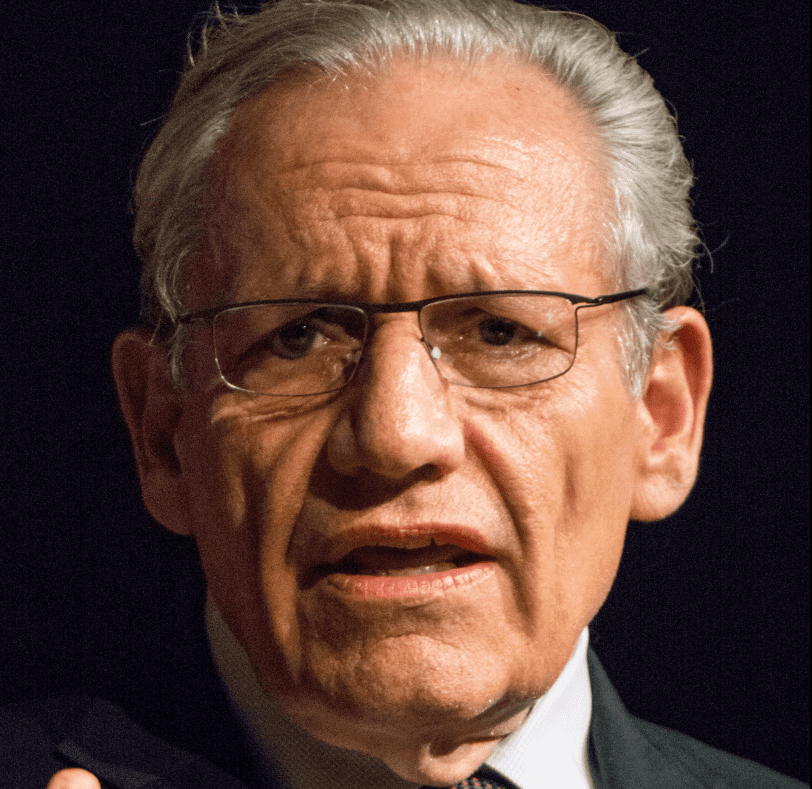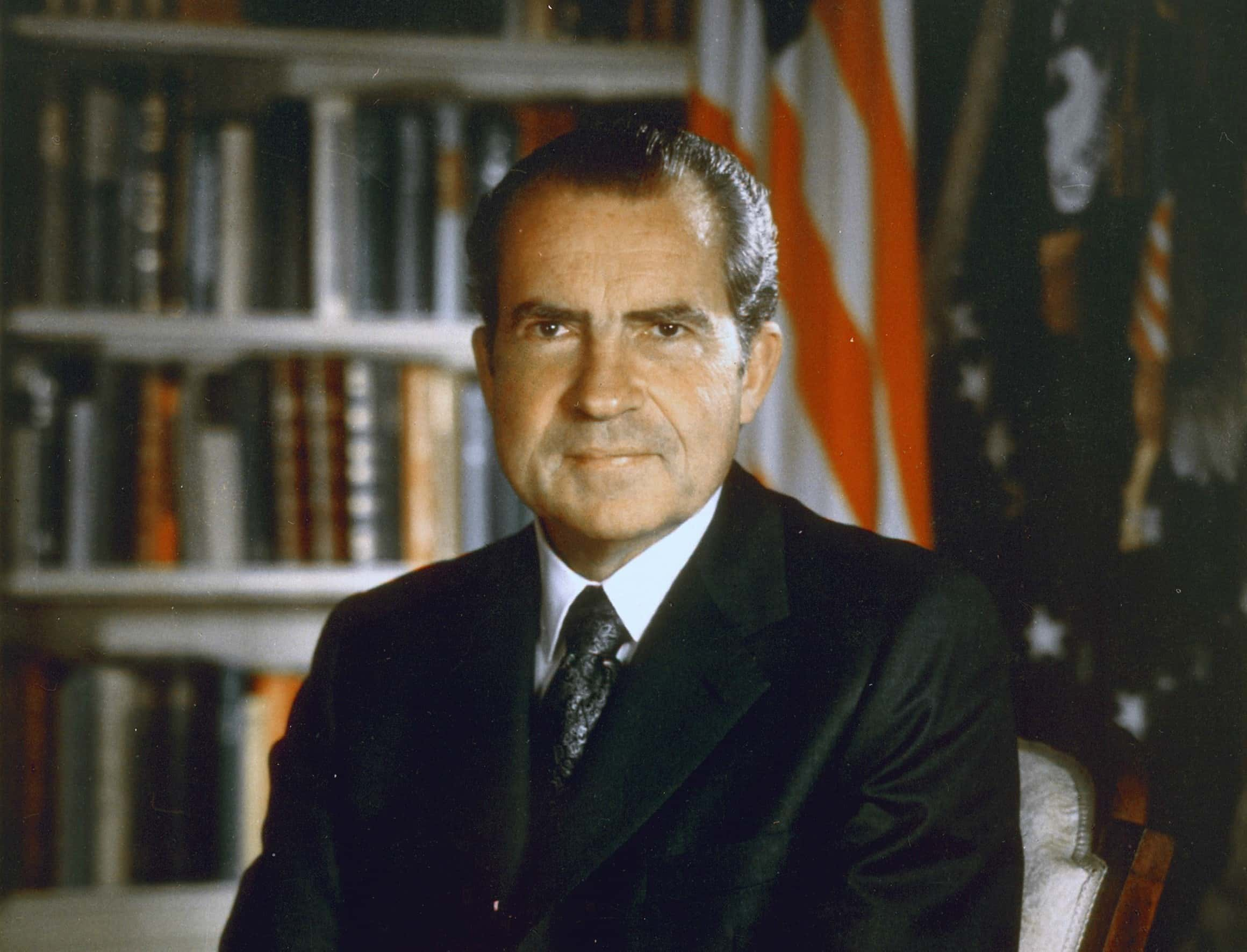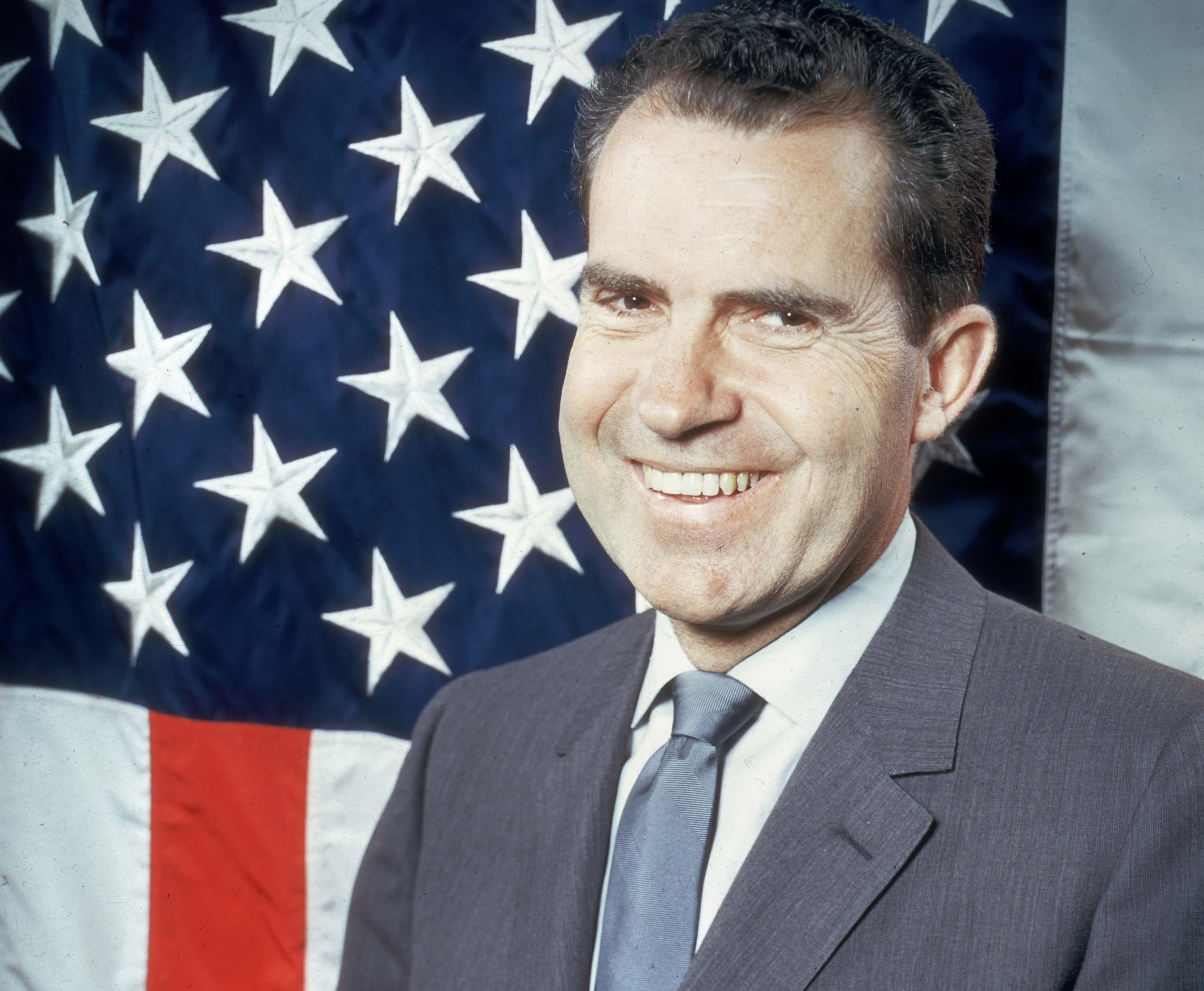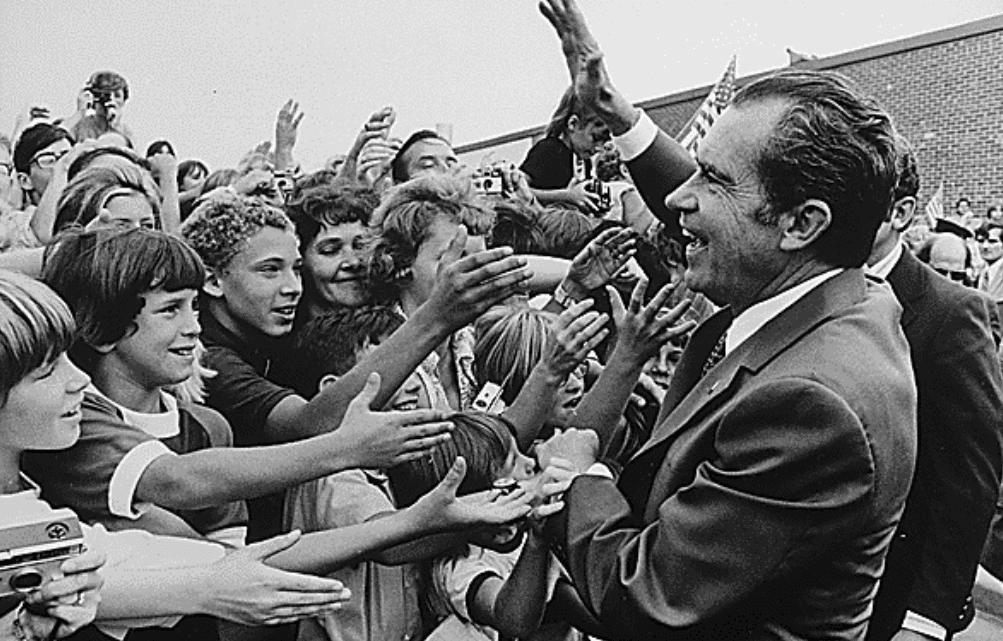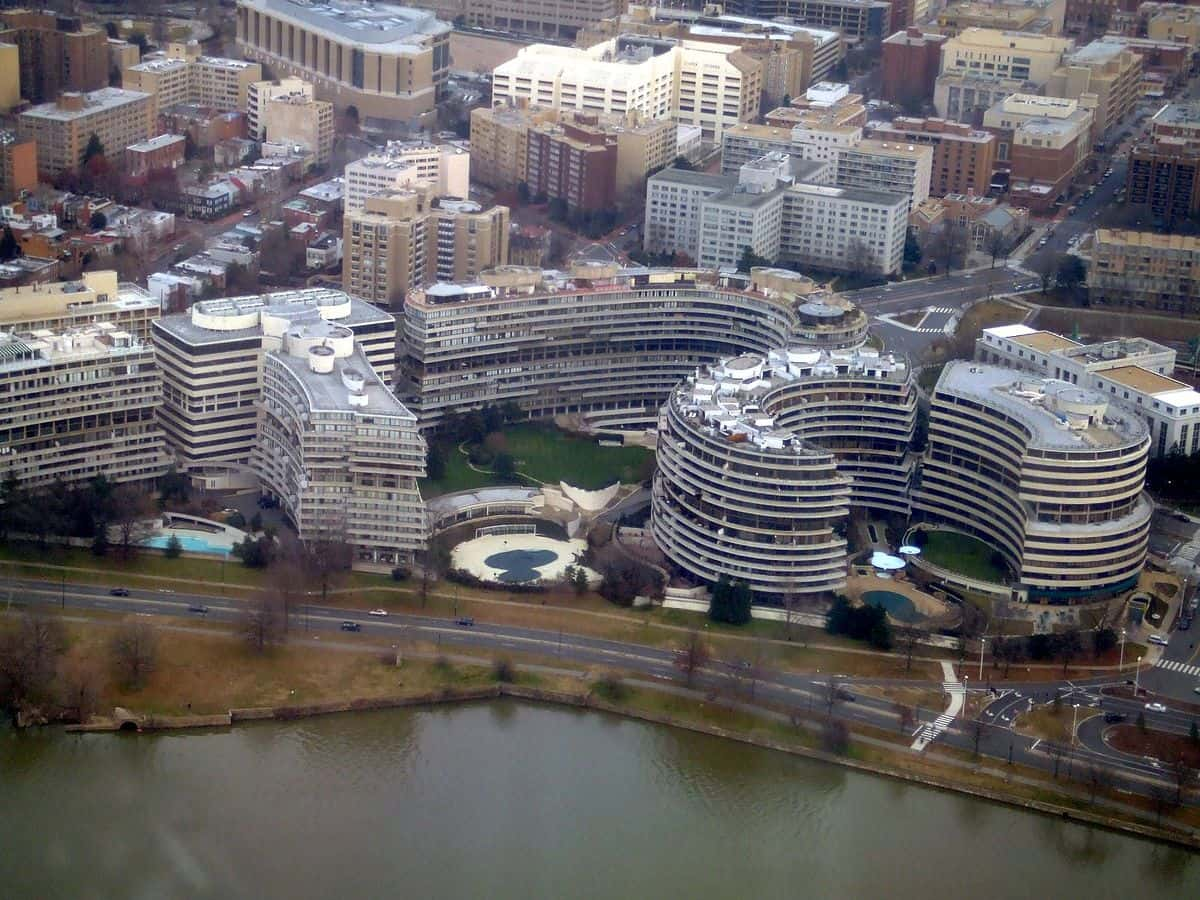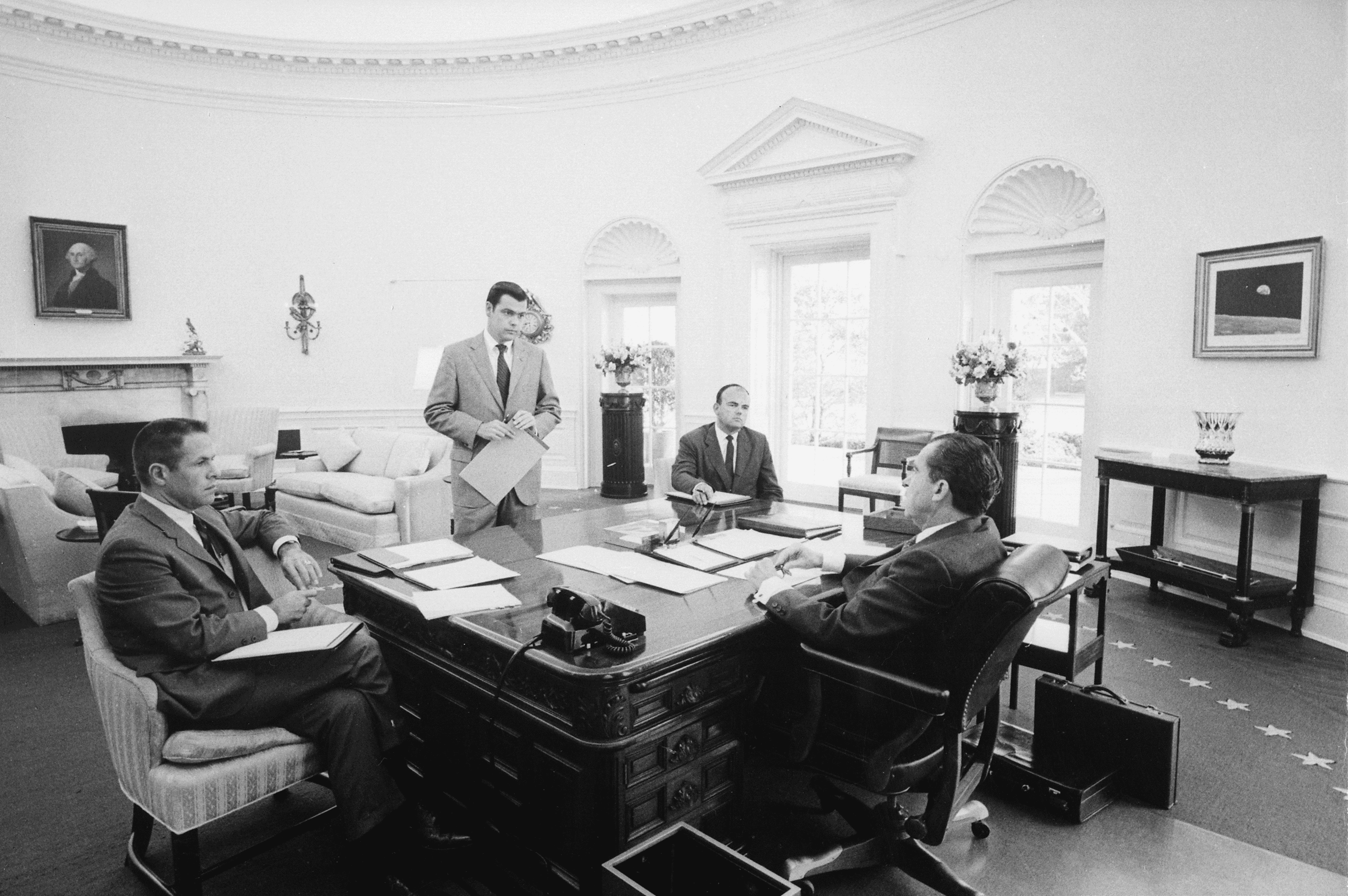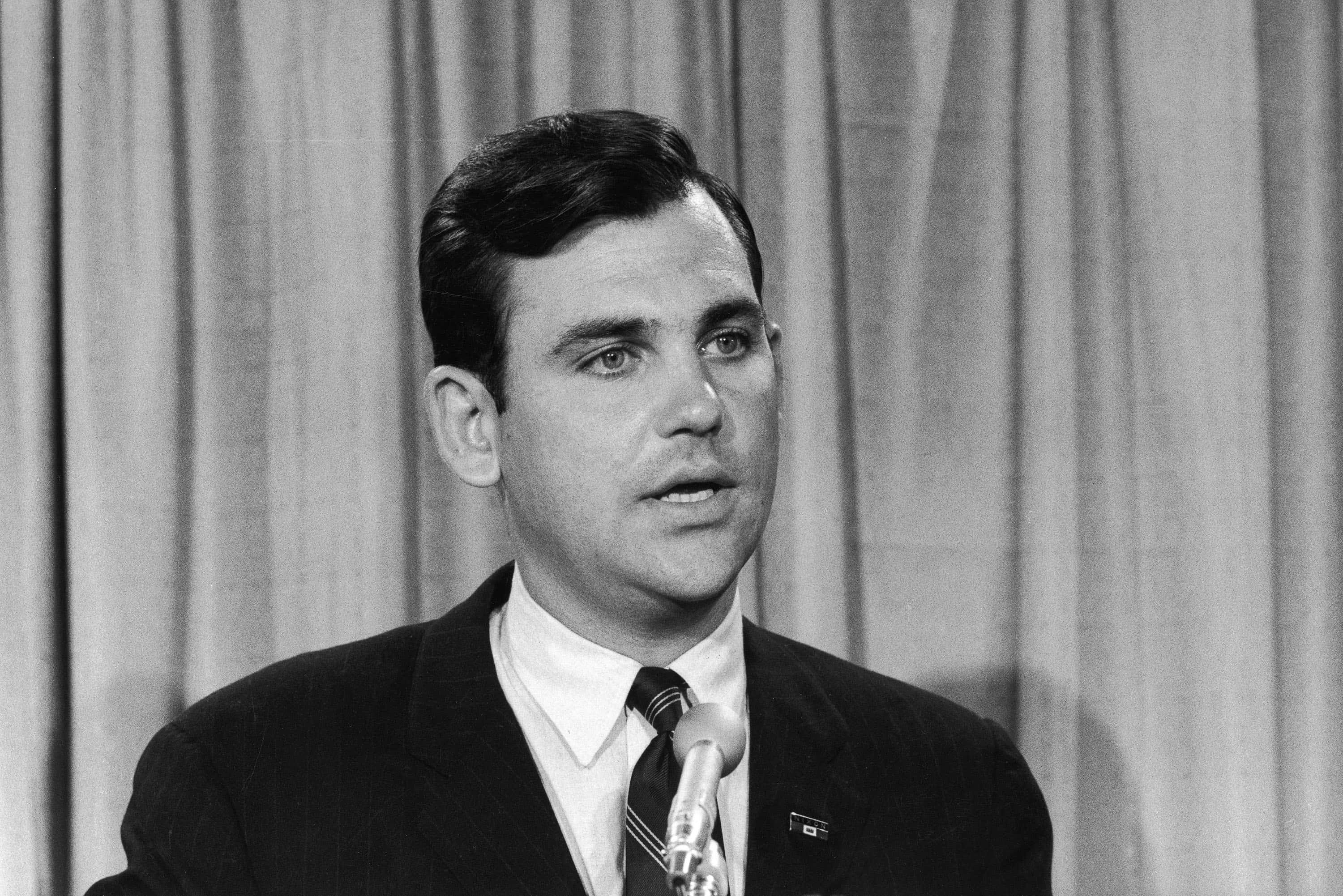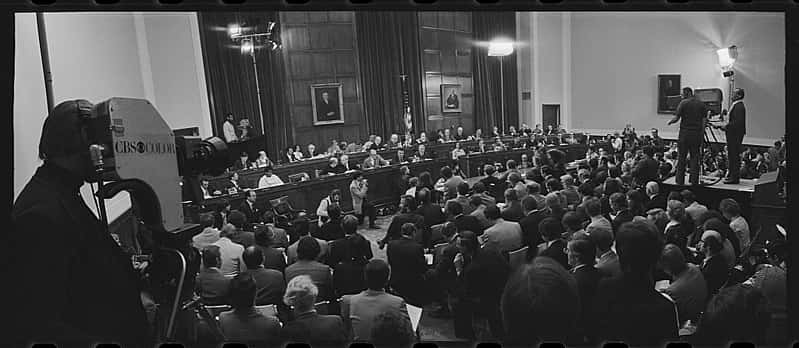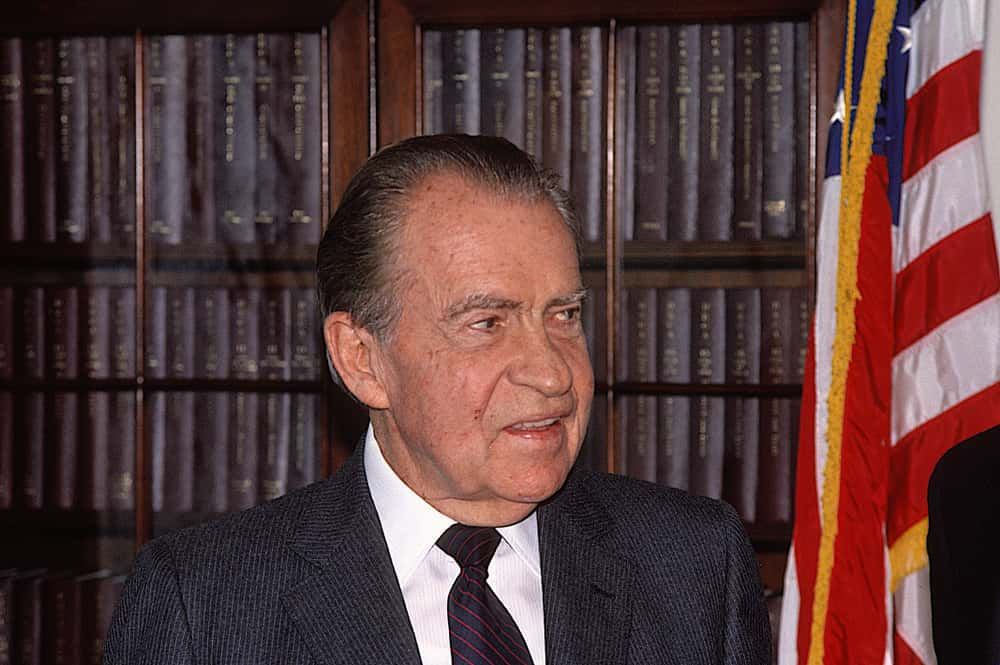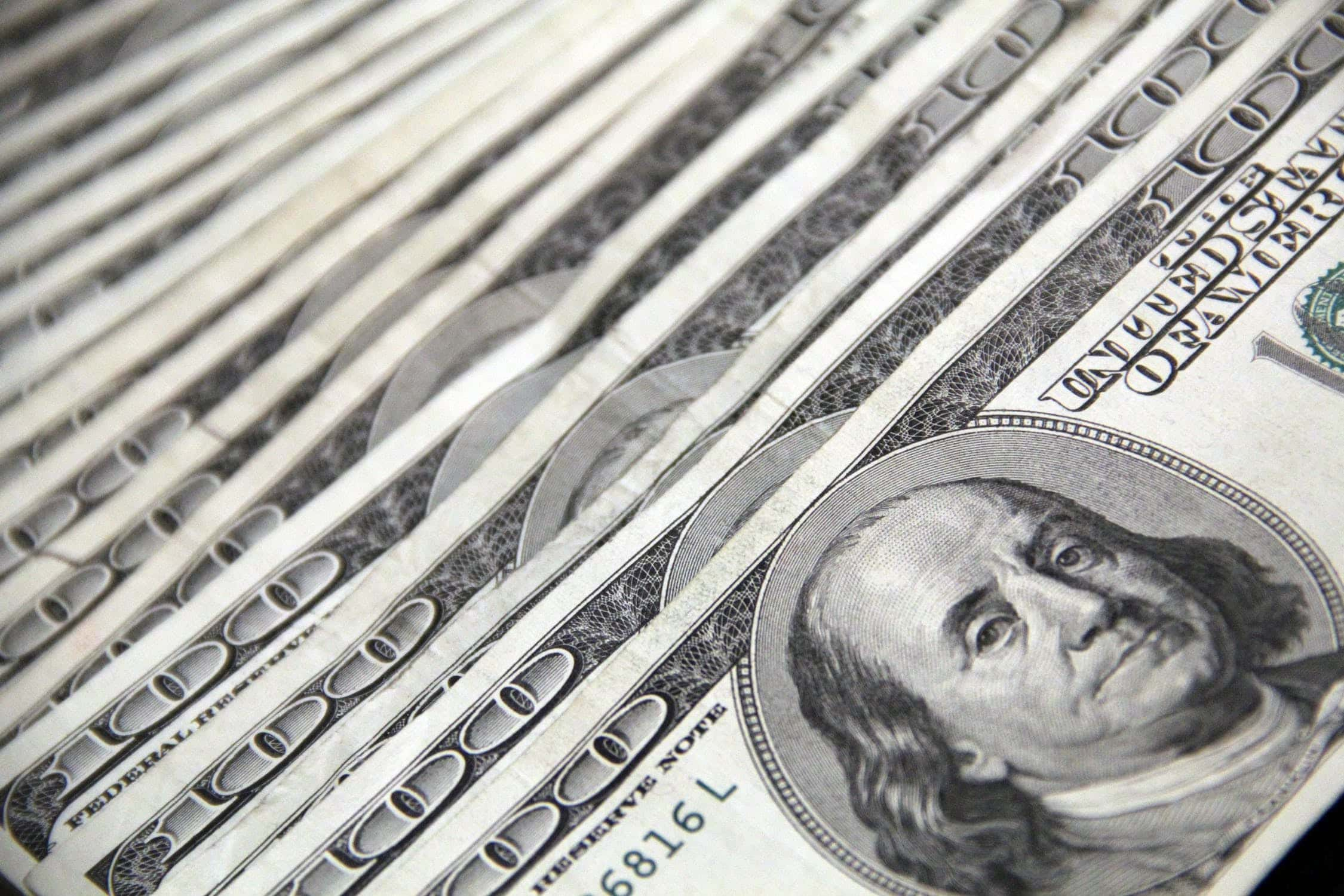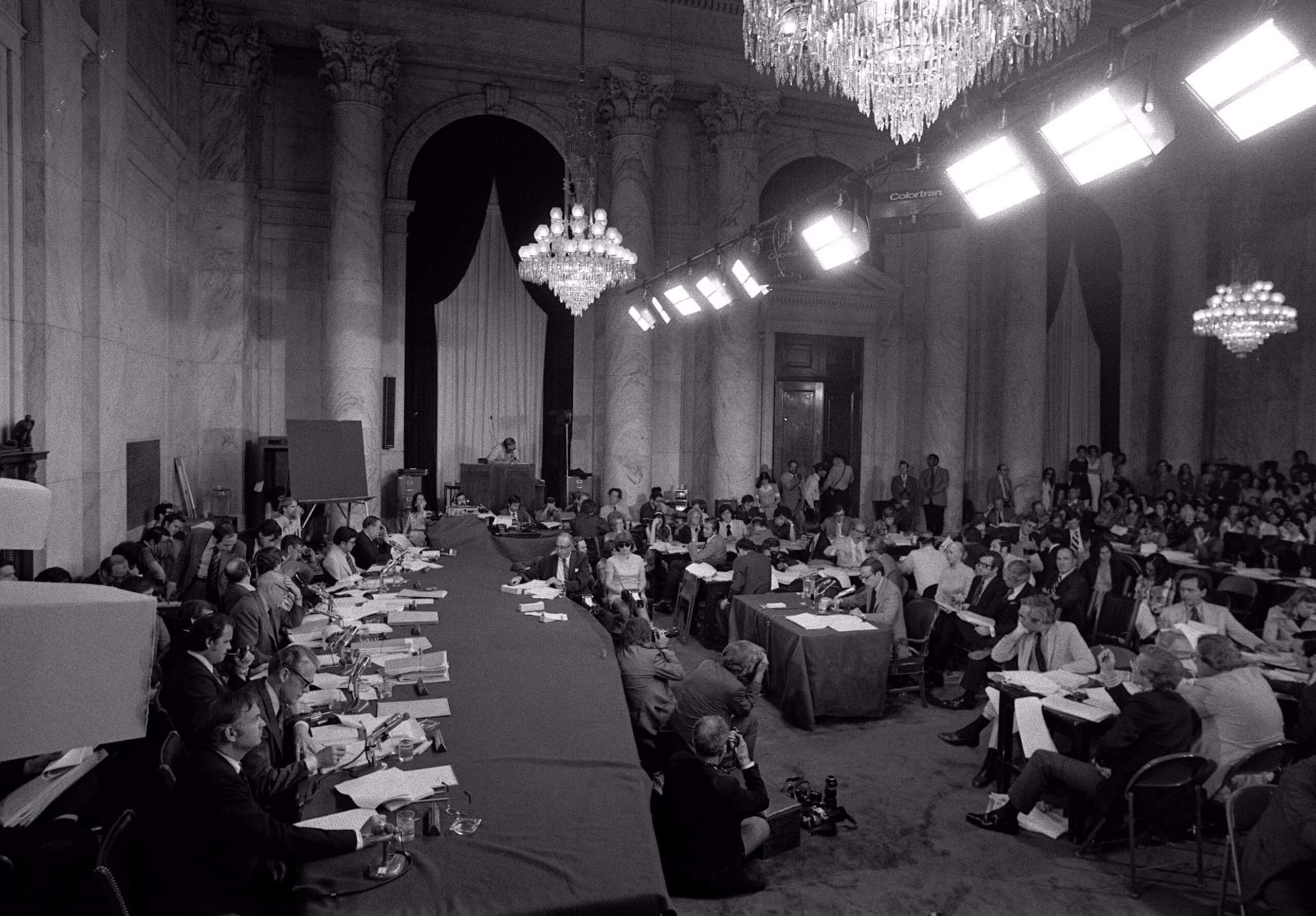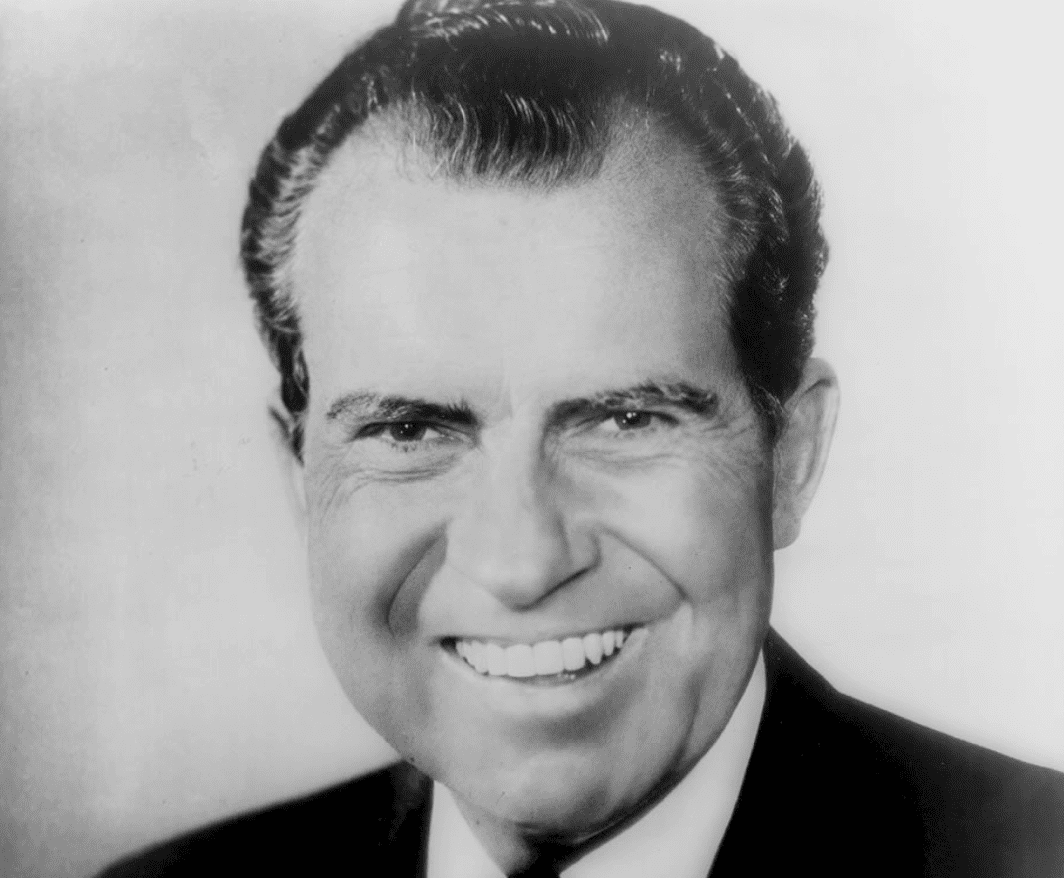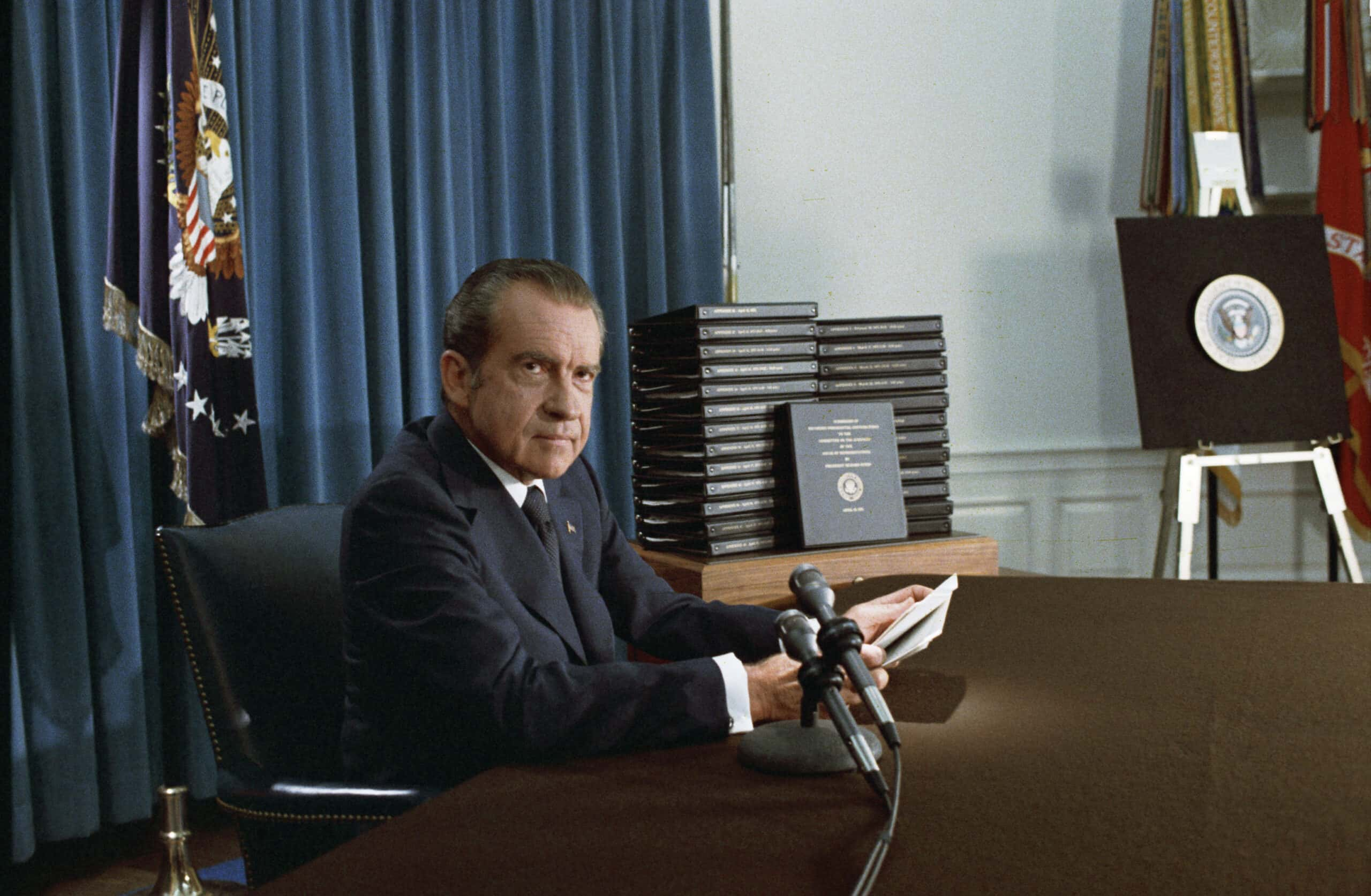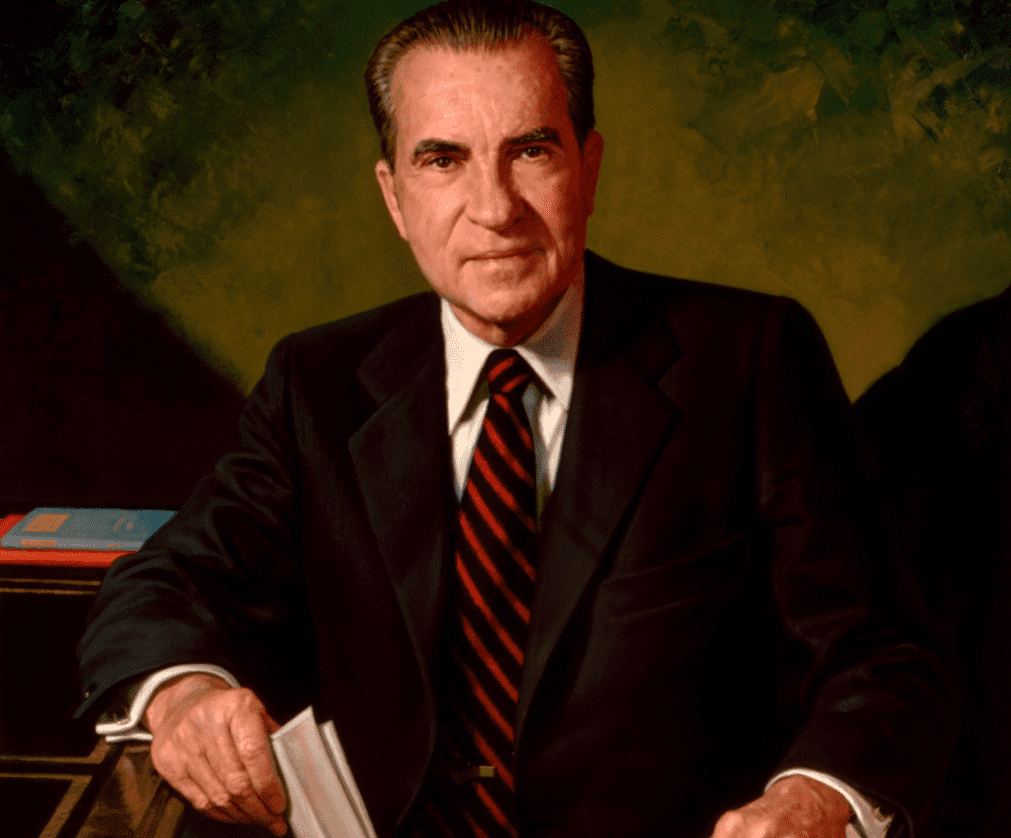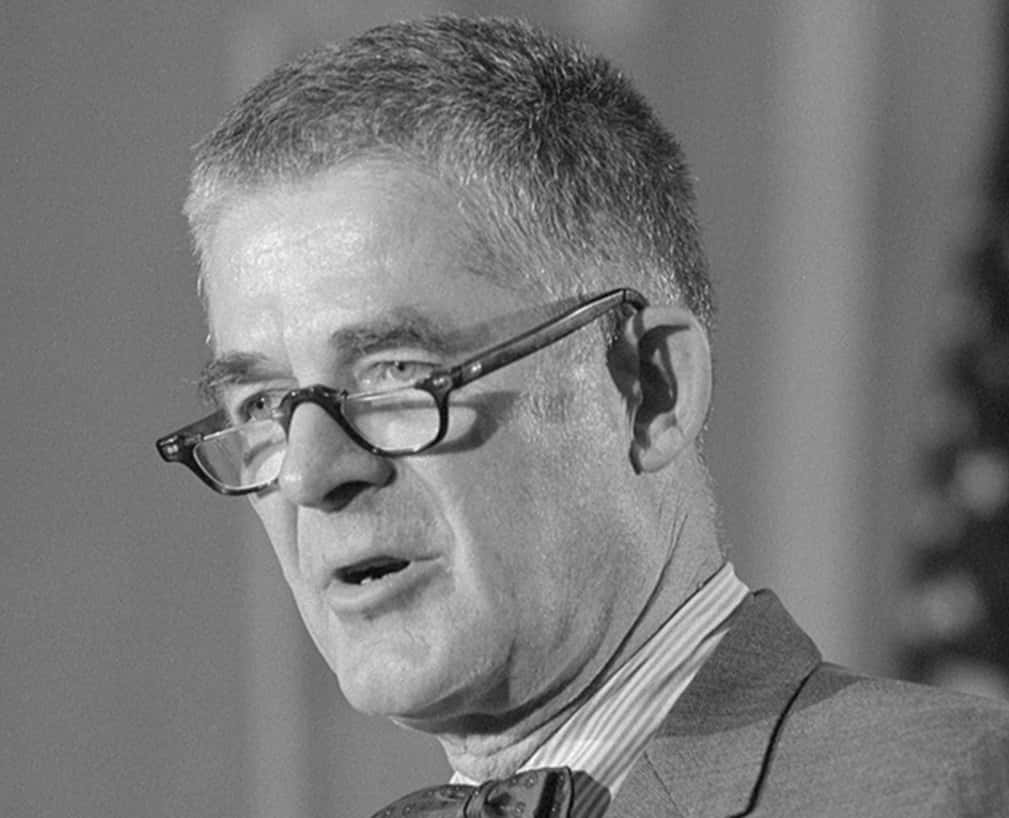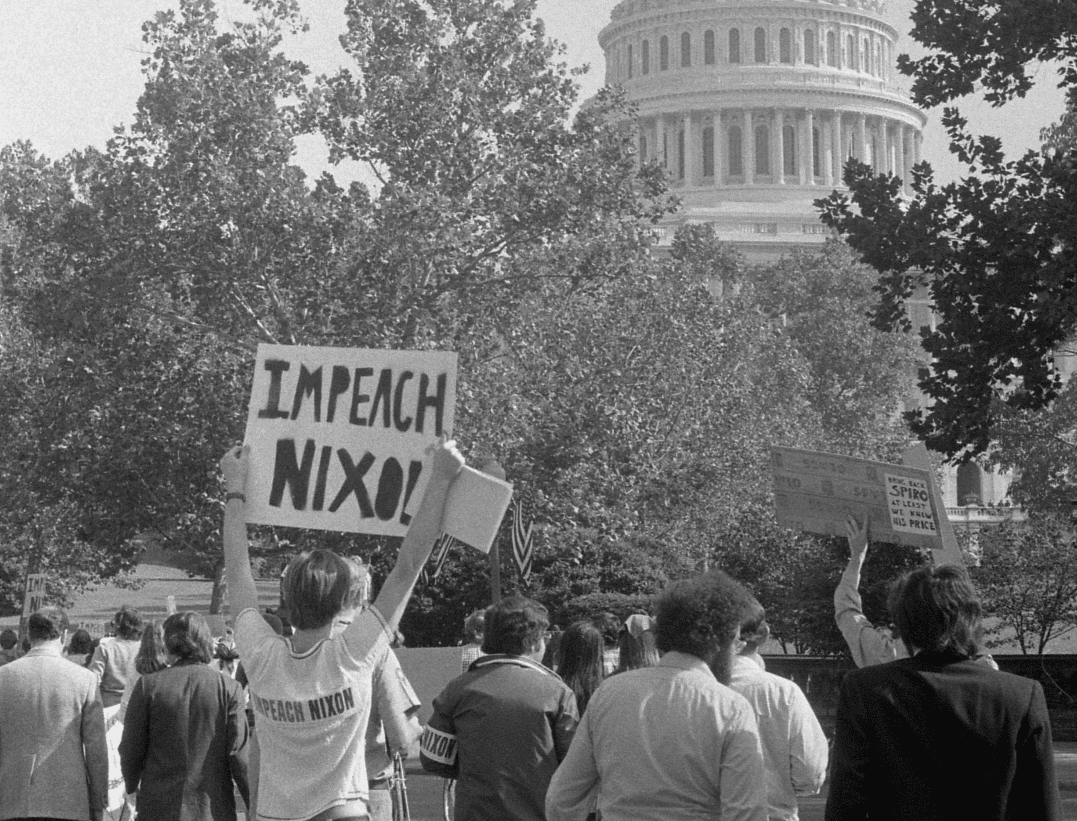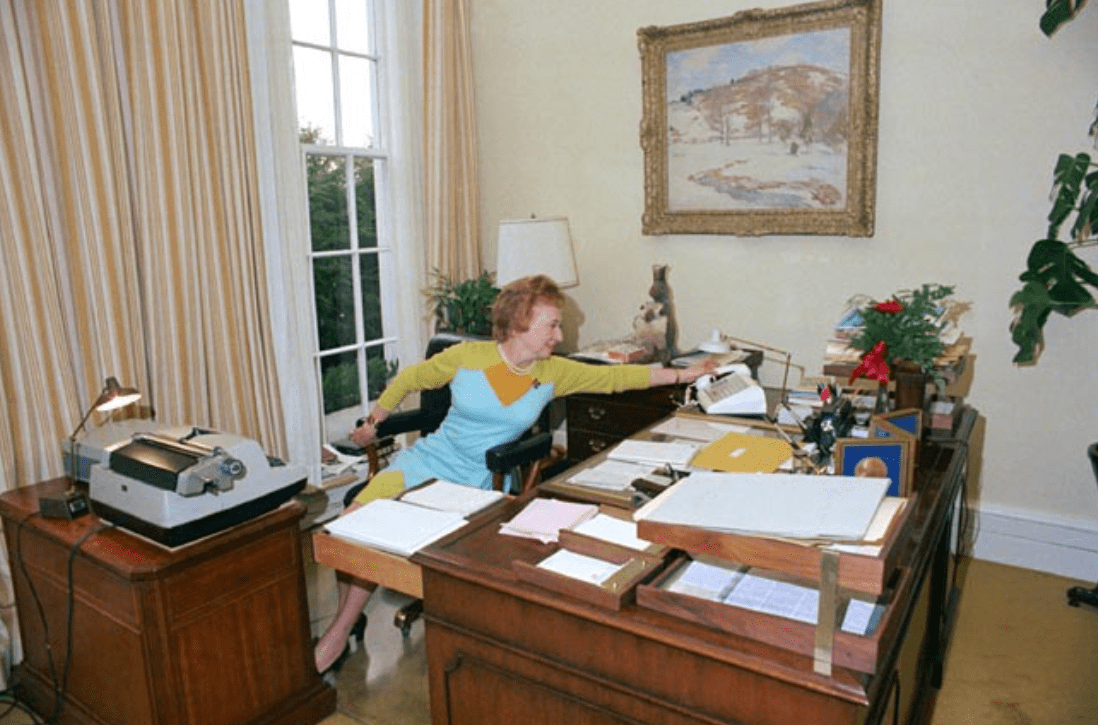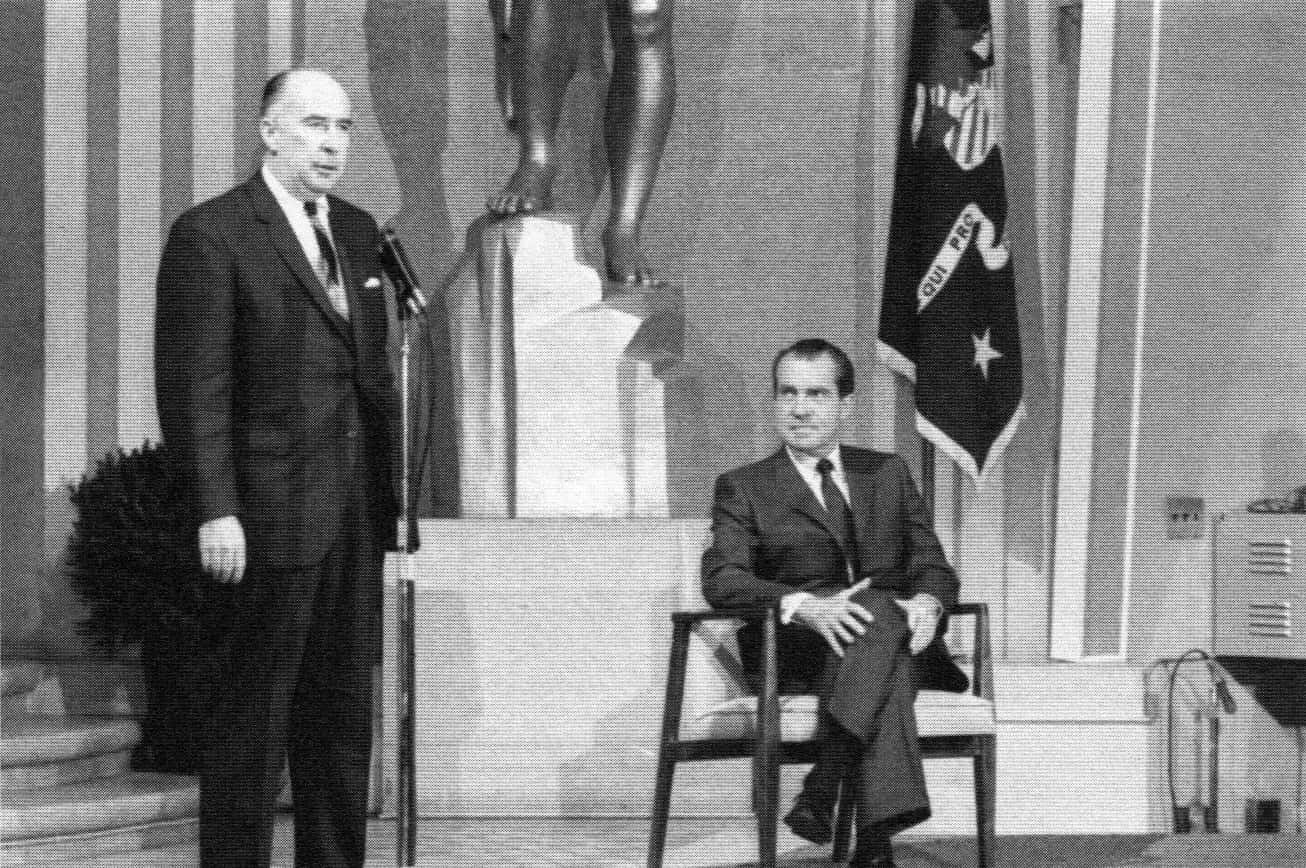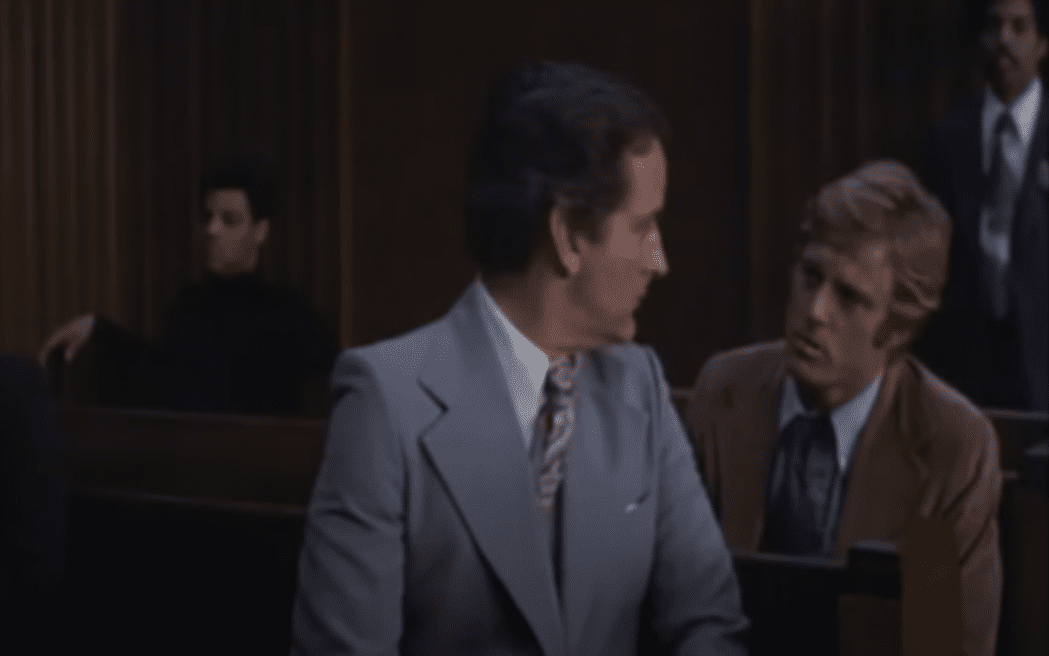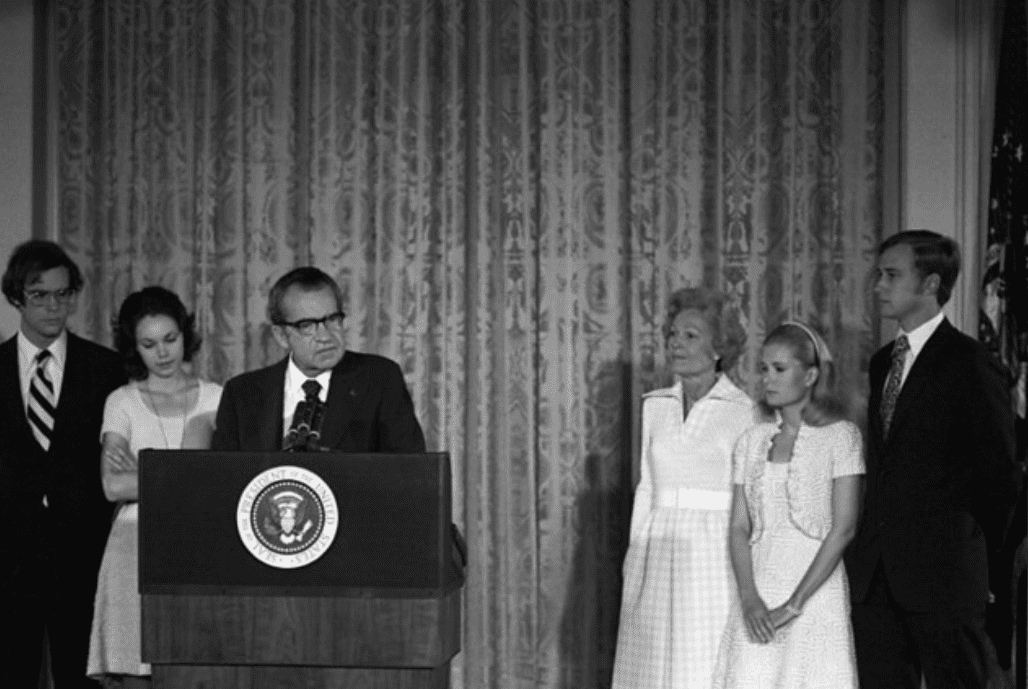The Watergate Scandal was an enormous political scandal that rocked the United States in the early 1970s. The scandal surfaced after five men broke into the Democratic National Committee Headquarters at the Watergate office complex in Washington D.C. on June 17, 1972, and the subsequent efforts of President Richard Nixon's administration to cover up their involvement. The scandal led to the discovery of multiple cases of abuse of power on the part of the administration and ultimately led to Nixon’s resignation. Below are 30 unimpeachable facts about one of the biggest political scandals in American history.
1. Judicial Reform
The Watergate scandal made the entire legal profession look bad. More than 30 attorneys involved in the scandal faced some kind of judicial proceeding, and as a result, most law schools in the United States began to require courses about professional responsibility. The American Bar Association also rewrote its responsibility code because of the scandal.
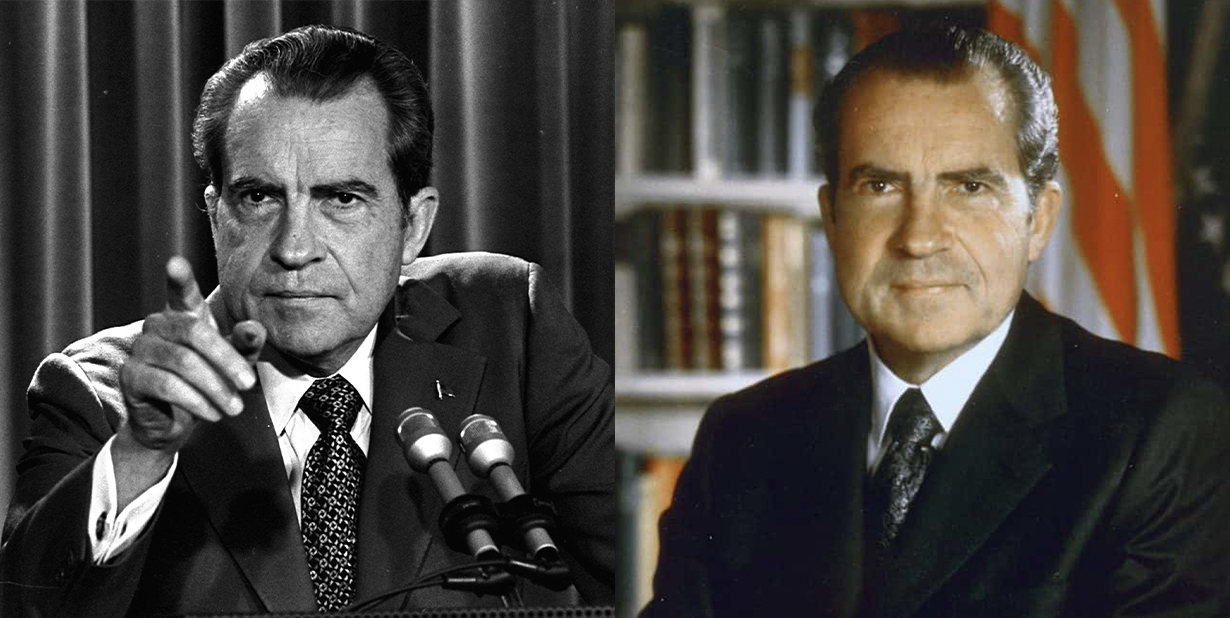
2. Celebrity Journalists
Watergate made two little-known reporters, Carl Bernstein and Bob Woodward, into celebrities. As a result, in the 1980s James Fallows allegedly coined the term "celebrity journalist," signifying the phenomenon of journalists who became more famous than the stories they covered. Nowadays, you can see celebrity journalists in every form of journalism out there.
3. Famous Sayings
Words and sayings from Watergate have become commonplace in America today. Nixon’s statement “I am not a crook” and President Ford’s declaration that “our national nightmare is over” are both frequently repeated, but perhaps the most widespread way the events affected the national parlance is the use of the suffix "gate" on a story to indicate scandal. As many as 200 scandals with "gate" tacked onto the end have made the news in the decades since.
4. It’s Not Against The Law
In a 1977 interview with David Frost, Nixon famously defended his actions during Watergate by stating “when the president does it, that means that it is not illegal," another iconic quote that stemmed from the scandal.
5. To Indict or Pardon
After Nixon’s resignation, officials struggled with whether or not to indict him. Article 1, Section 3, Clause 7 of the Constitution says that a person removed from office by impeachment and conviction is liable to indictment, but it didn’t say anything about a president who resigned from office. A month later, Nixon was pardoned by President Ford, putting an end to the debate. Ford justified his decision by explaining that he felt that the situation was "an American tragedy in which we all have played a part.”
6. Origin of a Scandal
In 1972, when the Republican Nixon was running for re-election, the United States was already deep into the Vietnam War and the country was deeply divided, making the election hard to predict.
7. Aggressive Tactics
Nixon’s team felt that a forceful campaign was essential for the president, and it was later discovered that some of the tactics they’d undertaken were unlawful espionage. In May 1972, members of Nixon’s "Committee to Reelect the President" (known as CRP but often mockingly called CREEP) broke into the DNC headquarters, took top-secret documents and bugged the office’s phones.
The Watergate office complex
8. Undone by Tape
When the wiretaps that the team had installed failed to work, on June 17 a group of five men returned to the Watergate building planning to replace the microphone. The burglars used tape to hold open the latches on the door locks. Security guard Frank Willis noticed the tape and called the authorities, who caught the men red-handed.
9. White House Plumbers
In 1971, Nixon formed the “White House Plumbers," a secret unit that was created to stop information from being leaked out of the White House. Their first task was to dig up dirt on Daniel Ellsberg, the man who leaked the Pentagon Papers. They went on to commit a number of offenses for CREEP, including, of course, the Watergate burglaries.

History's most fascinating stories and darkest secrets, delivered to your inbox daily.
10. Third-Rate Burglary
Two days after the break-in, Nixon's Press Secretary Ron Zeigler tried to downplay the events, calling them a "third-rate burglary" at a press conference in Key Biscayne, Florida, and saying that “certain elements may try to stretch this beyond what it is.”
11. Suspicious Connection
After the break-in, there didn't initially seem to be a clear connection between Nixon and the burglars, but detectives became suspicious when they found copies of CREEP’s White House phone number among the burglars' effects.
12. Deep Throat
A source called “Deep Throat” was the one who provided the Washington Post with scoops about the scandal as information became available. In journalism lingo, the name meant a source of such "deep background" that he could not even be quoted anonymously. The term was also a reference to the 1972 adult movie also called Deep Throat. Eventually, it was revealed that "Deep Throat" was none other than FBI associate director Mark Felt.
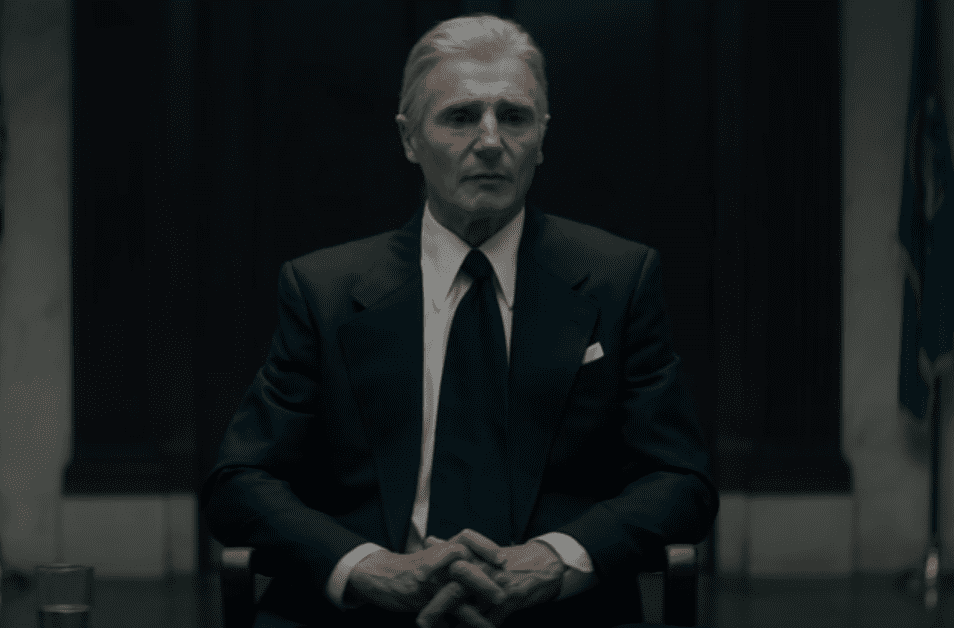 Mark Felt: The Man Who Brought Down the White House,Sony Pictures Entertainment
Mark Felt: The Man Who Brought Down the White House,Sony Pictures Entertainment
Liam Neeson in "Mark Felt''
13. I Didn’t Do It!
In August 1972 Nixon gave a speech in which he denied any knowledge of the break-in and any involvement on the part of his staff. The public believed him and he won re-election by a landslide that November. Until his passing in 1994, Nixon continued to proclaim his innocence, saying he’d only been wrong in not "acting more decisively" when it came to dealing with the illegalities of Watergate.
14. Hush Money
One of the facts that came to light during the Watergate Investigation was that days after the break-in, Nixon had provided hundreds of thousands of dollars to the burglars to keep them quiet, a curious act from someone who claimed to have no knowledge of the offense.
15. Taking a Plea
In 1973, James McCord and the other conspirators involved in the break-in either pled guilty or were convicted. Before sentencing, McCord wrote a letter to the judge stating that high Republican and White House officials knew about the break-in and had paid the defendants to keep their mouths shut.
16. Impeding the Investigation
After paying off the burglars, Nixon and his staff hatched a plan to instruct the CIA to impede the FBI’s investigation of the break-in. This ended up being one of the most serious offenses he would commit as it was a clear abuse of presidential power and a deliberate obstruction of justice.
17. Breaking the Story
Thanks to the information supplied to reporters Bernstein and Woodward by Deep Throat, the Washington Post played a key role in breaking the scandal. But, contrary to popular opinion, they were not the only paper with scoops on the story. The New York Times, Los Angeles Times and Newsday also played important roles in breaking the scandal.
18. Resignations
On April 30, 1973, four of Nixon’s top officials resigned amidst the scandal. They included John Dean, White House counsel, H.R. Haldeman, chief of staff, John D. Ehrlichman assistant for Domestic Affairs, and Attorney General Richard Kleindienst. In an address to the nation following their resignation, Nixon declared “There can be no whitewash at the White House” and pledged to take steps to purge the political system of the kind of abuses that emerged during Watergate. This was, of course, before his involvement in the scandal had been proven.
19. Poisonous Fruit
The Republican Senate Minority Leader Hugh Scott, who happened to have a flair for language, was instrumental in pushing Nixon out of office. Of the resignations, he proclaimed: "a lack of grace in power has led to a fall from grace. This rotten vine of Watergate has produced poisonous fruit, and all nourished by it should be cast out of the Garden of Eden."
20. Nixon Tapes
In 2014, just in time for the 40th anniversary of Nixon’s resignation, historians Douglas Brinkley and Luke Nichter published the “Nixon Tapes 1971-72." Between 1971-1973, Nixon secretly recorded 3700 hours of his phone calls and meetings. Ironically, it was these recordings that led to his eventual resignation as president.
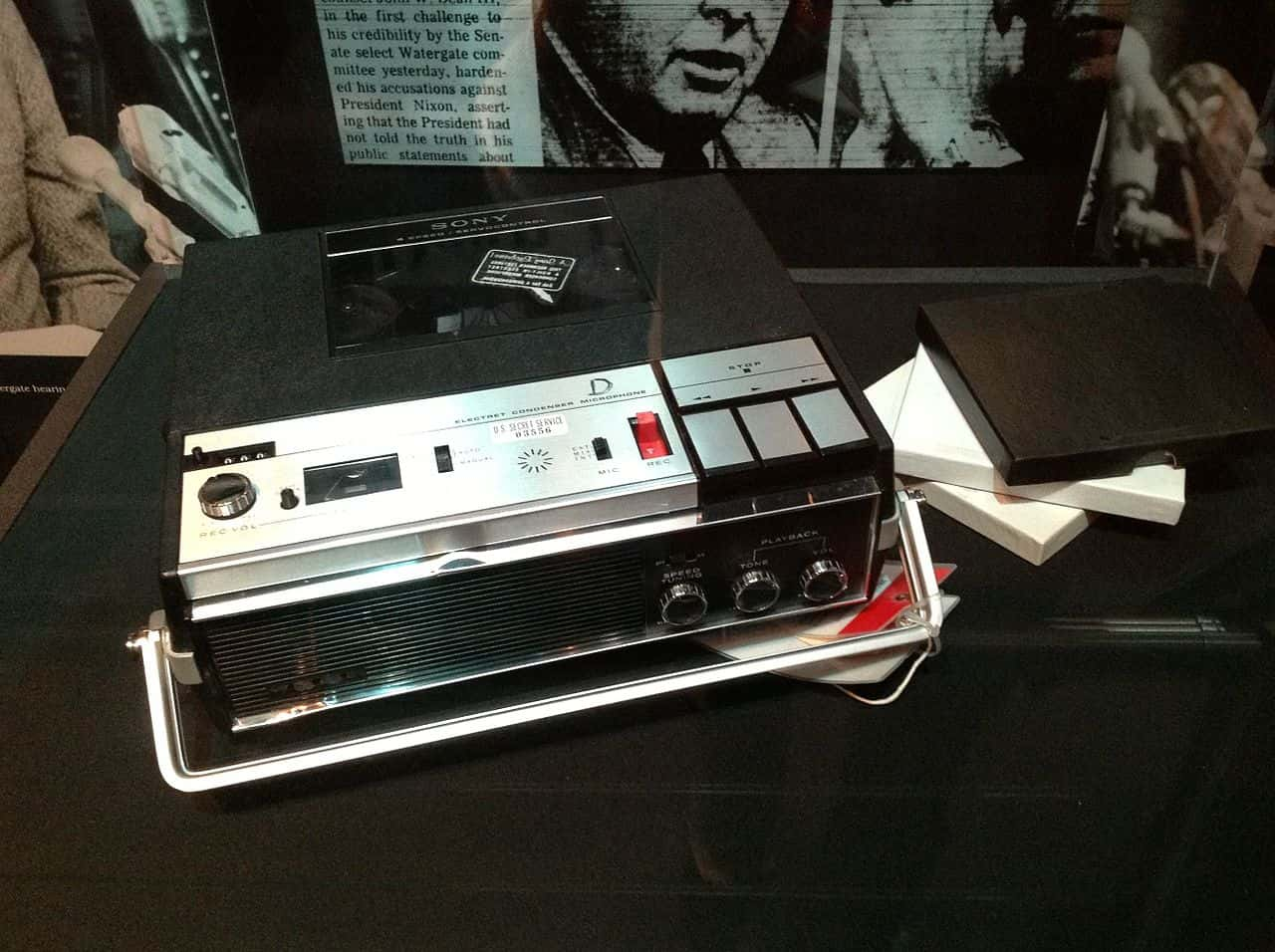 Wikimedia Commons
Wikimedia Commons
21. Executive Privilege
During the investigation, Nixon tried to keep his secret tapes from being released. His lawyers argued that executive privilege meant Nixon could keep the tapes private, but Judge John Sirica, the Senate committee, and independent special prosecutor Archibald Cox wanted the tapes. Their determination to secure the tapes led to the events known as the Saturday Night Massacre.
22. Saturday Night Slaughter
As a part of his investigation, Cox subpoenaed Nixon's secret tapes. Nixon attempted to issue an executive order to Cox forcing him to stop seeking the tapes, but Cox denied him. As a result, on October 20, 1973, Nixon fired Cox and accepted the resignation of the Attorney General Elliot Richardson and Deputy Attorney General William Ruckelshaus, an event known as the Saturday Night Massacre. Nixon had ordered both Richardson and Ruckelshaus to fire Cox, but they refused and resigned their positions in protest. Richardson’s replacement Robert Bork reluctantly complied.
Archibald Cox
23. Consequences
After Nixon’s attack on his own justice department, more than 50,000 Americans sent telegrams to Washington and 21 members of Congress introduced articles of impeachment against the president. Faced with overwhelming protest, Nixon appointed a new special prosecutor and the investigation resumed. Eventually, Nixon agreed to release some of the tapes but still wouldn’t release them all.
24. Surrender the Tapes!
On July 24, 1974, the Supreme Court unanimously ordered Nixon to surrender the tapes. The court rejected his claim to "absolute, unqualified Presidential privilege of immunity from judicial process under all circumstances.” More than 64 tapes were turned over to the special prosecutor.
25. Missing Minutes
When the tapes were reviewed, it was revealed that an 18-minute section of the tapes had been erased. The missing portion is believed to have included a conversation between Nixon and Haldeman about the Watergate arrests. Nixon’s personal secretary Rose Mary Woods claimed she accidentally taped over the recordings when she pushed the wrong foot pedal, but when asked to show exactly how it would have happened, it was shown to be so implausible that it essentially discounted her explanation. It is believed to be much more likely that Nixon erased the tapes himself because they contained blatantly incriminating information.
26. Never Gave the Order
Contrary to popular belief, Nixon himself never ordered the Watergate break-in. The approval for that act came from Nixon’s Attorney General and chair of CREEP John Mitchell. Nixon's crimes were related to collusion in the aftermath to distance his administration from the scandal.
27. Watergate Goes to the Movies
Since the scandal broke, Watergate has been providing Hollywood with storytelling fodder. One of the first (and most famous) movies was the 1976 film All the President’s Men, which starred Robert Redford and Dustin Hoffman as Woodward and Bernstein. It is also remembered as one of the best films about journalism ever made. In 2008, Ron Howard’s historical drama Frost/Nixon was nominated for five Oscars. Rather than portray Watergate itself, the film focused on the aftermath—specifically Nixon’s series of interviews with David Frost where he uttered the famous "when the president does it, that means that it is not illegal." Other films, from comedy to drama, have also used the scandal as a plot point. Even Forest Gump got in on the action, briefly addressing Watergate in the film.
28. Church Committee
During the hearing, concerns surfaced about the FBI investigating American citizens for political purposes. These fears were exacerbated by a story from the New York Times about CIA allegations of domestic spying. The Church Committee held hearings after Watergate about these and other secret activities. As a result, The Foreign Intelligence Surveillance Act of 1978 was born, and it created the FISA court to authorize surveillance operations that were a matter of national security.
29. The Game is Up
The tapes that were turned over to the Special Prosecutor proved that Nixon had not only been part of the cover-up but that he was complicit in the Watergate crimes. The previously unknown audio tape documented a plan between Nixon and Bob Haldeman to block investigations by having the CIA claim to the FBI that the break-ins had been committed because of a matter of national security, a rationalization that was completely false.
Facing certain impeachment, on August 8, 1974, Nixon submitted a one-sentence letter of resignation that simply said: "I hereby resign the Office of President of the United States." He would claim that the Watergate Scandal prevented him from carrying out his duties. He later held a press conference where he said: “I have always tried to do what is best for the nation.” The next day, as he and his wife departed on the Marine One helicopter, he gave his trademark V-sign salute.
30. Post-Script
As more Nixon tapes were made public, strange details about his conversations emerged. In one, he talks at length about the intimate lives of pandas, and other tapes reveal Nixon's anti-semitism, as well as his and Henry Kissinger's support for the genocide being perpetrated by Pakistan's government against the Burmese. Although he presented a facade of having no regrets, it's hard to believe that Nixon didn't feel any grief over all that happened and all that was revealed, just because he was the first US President to tape all of his own activity.

